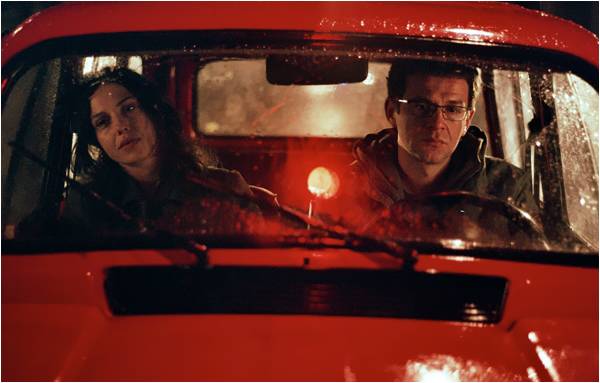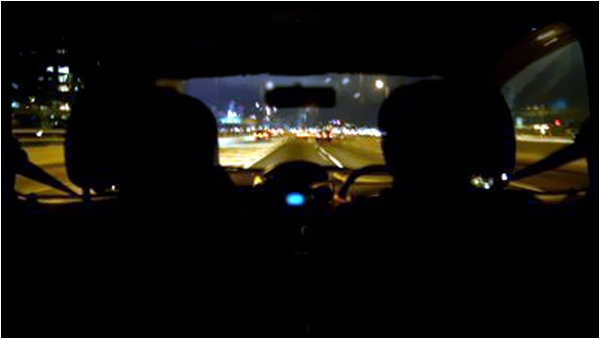
I just got mistaken for a prostitute, a predicament that is probably familiar to most women who have dated in Pakistan. Or who have sat in a park . Or worn jeans. Or worn a niqab. Or walked on the streets. This is the second time this has happened in my life, and it is perhaps telling that in both instances I was with the same person.
The first time it happened, I had just moved back home from the US after college, and I was in love. However, I didn’t know that at the time, because it was early days yet and the emotional kaleidoscope of serotonin surges and pure adrenaline hadn’t allowed me enough clarity of thought to ascertain that fact. The level of our collective naivete was so face-palm worthy that one night after dinner, we started talking while he was driving me home, and we thought it would be a good idea to park outside Alhamra Cultural Center in Lahore, Pakistan, which we happened to be passing just then, and finish our Very Serious conversation. The kind of conversation in which your eyes are full of stars and your hearts in your throat and you’re both misty eyed and each pause is imbued with more meaning than words can possibly contain. We were too engrossed in feeling too many feelings to notice the swarm of cops descending upon us. In the next moment, there were raps on the car window (his dad’s) and pot bellied moustached uniformed leering men looking me up and down and accusing us of zina and threatening to call our parents, which is of course a desi middle class girl’s worst nightmare. We were like deer in headlights, too shell-shocked to be savvy and street smart, even if we knew how (which we decidedly did not). “Thank God I’m at least wearing shalwar kameez today,” I remember thinking. Flushed and stammering, eventually my companion handed them money and we drove quietly home, feeling differently but just about equally humiliated.
Fast forward six and a half years, we are now married to each other, and have done our best not to bring up that incident in the preceding years. We are waiting one night, after a fight that has dragged on for days, outside his shrink’s house, as per the course for 20-something upper middle class creative professionals, I’d imagine. Listless and desultory, we are sitting in a parked car in a quiet street in this residential area. Cops in Pakistan, like most predators, hunt in packs, and a five-member one is suddenly honking at us in a huge, intimidating cop car and talking on the radio and of course doing their best to take in exactly what I look like and how I am dressed (in jeans, sneakers and a scoop-necked tshirt, oh the scandal of it). By which I mean there are about five ugly noses glued to my glass window, trying to look down my shirt. My partner got out, eyes and wedding ring flashing, and in a strained but polite way, explained the legally formalized nature of our relationship, as well as what we were doing there. The gentlemen from the police department declared that a house nearby had complained about us sitting there (mind you, we had been waiting for only about five minutes), and requested them to investigate our shameful behavior.

I can’t explain what happened next. Despite trying, “sharam” and “log kya kahayN ge” continue to dictate so many of my actions and beliefs. It is a challenge and a half to let go of. Like other good girls, I have been raised with the idea that policemen in Pakistan are so cretinous that a good woman simply must not defile herself by interacting with one in any capacity whatsoever. My well-intentioned spouse has continued to reinforce that protectionism. My theory is that after days of being passive aggressive to my spouse and simmering in insult, the dam just broke and unleashed limitless rage and indignation. I stormed out of the car, got in the faces of five desi cops - in my shameless western outfit no less - and proceeded to yell at them and shame them for the next several minutes. They were general banalities like “I understand you’re unable to protect the citizens of this country, but must you harass them?” but I would like to believe my rage was more eloquent than my words. I am fairly sure there’s a recent law that makes specifically this kind of harassment illegal, and I would have dearly loved to remind them, but for the life of me I couldn’t remember what it was. And I work for a non-profit run by women! For shame. I continued to yell at their backs as they fled on state owned motorcycles and a car paid for by my tax money and other suckers’ (because let’s face it, only suckers pay taxes in this country). My husband high-fived me.
For the past few months, I have found myself looking longingly at the lives of my single women friends, and had begun to wonder just what the possible advantages of marriage are, an institution which is historically and almost inherently oppressive and gender-role driven, and often feels like an archaic and unwieldy experience to be immersed in. However, in front of those cops, in the throes of our collective anger and righteous indignation and our refusal to be shamed, I felt more close to my husband than I had in weeks. If nothing else, marriage had made us more shameless, as well as supportive of each others’ shamelessness. And that can only be a good thing.
The first time it happened, I had just moved back home from the US after college, and I was in love. However, I didn’t know that at the time, because it was early days yet and the emotional kaleidoscope of serotonin surges and pure adrenaline hadn’t allowed me enough clarity of thought to ascertain that fact. The level of our collective naivete was so face-palm worthy that one night after dinner, we started talking while he was driving me home, and we thought it would be a good idea to park outside Alhamra Cultural Center in Lahore, Pakistan, which we happened to be passing just then, and finish our Very Serious conversation. The kind of conversation in which your eyes are full of stars and your hearts in your throat and you’re both misty eyed and each pause is imbued with more meaning than words can possibly contain. We were too engrossed in feeling too many feelings to notice the swarm of cops descending upon us. In the next moment, there were raps on the car window (his dad’s) and pot bellied moustached uniformed leering men looking me up and down and accusing us of zina and threatening to call our parents, which is of course a desi middle class girl’s worst nightmare. We were like deer in headlights, too shell-shocked to be savvy and street smart, even if we knew how (which we decidedly did not). “Thank God I’m at least wearing shalwar kameez today,” I remember thinking. Flushed and stammering, eventually my companion handed them money and we drove quietly home, feeling differently but just about equally humiliated.
We are waiting one night, after a fight that has dragged on for days, outside his shrink's house
Fast forward six and a half years, we are now married to each other, and have done our best not to bring up that incident in the preceding years. We are waiting one night, after a fight that has dragged on for days, outside his shrink’s house, as per the course for 20-something upper middle class creative professionals, I’d imagine. Listless and desultory, we are sitting in a parked car in a quiet street in this residential area. Cops in Pakistan, like most predators, hunt in packs, and a five-member one is suddenly honking at us in a huge, intimidating cop car and talking on the radio and of course doing their best to take in exactly what I look like and how I am dressed (in jeans, sneakers and a scoop-necked tshirt, oh the scandal of it). By which I mean there are about five ugly noses glued to my glass window, trying to look down my shirt. My partner got out, eyes and wedding ring flashing, and in a strained but polite way, explained the legally formalized nature of our relationship, as well as what we were doing there. The gentlemen from the police department declared that a house nearby had complained about us sitting there (mind you, we had been waiting for only about five minutes), and requested them to investigate our shameful behavior.

I can’t explain what happened next. Despite trying, “sharam” and “log kya kahayN ge” continue to dictate so many of my actions and beliefs. It is a challenge and a half to let go of. Like other good girls, I have been raised with the idea that policemen in Pakistan are so cretinous that a good woman simply must not defile herself by interacting with one in any capacity whatsoever. My well-intentioned spouse has continued to reinforce that protectionism. My theory is that after days of being passive aggressive to my spouse and simmering in insult, the dam just broke and unleashed limitless rage and indignation. I stormed out of the car, got in the faces of five desi cops - in my shameless western outfit no less - and proceeded to yell at them and shame them for the next several minutes. They were general banalities like “I understand you’re unable to protect the citizens of this country, but must you harass them?” but I would like to believe my rage was more eloquent than my words. I am fairly sure there’s a recent law that makes specifically this kind of harassment illegal, and I would have dearly loved to remind them, but for the life of me I couldn’t remember what it was. And I work for a non-profit run by women! For shame. I continued to yell at their backs as they fled on state owned motorcycles and a car paid for by my tax money and other suckers’ (because let’s face it, only suckers pay taxes in this country). My husband high-fived me.
If nothing else, marriage had made us more shameless
For the past few months, I have found myself looking longingly at the lives of my single women friends, and had begun to wonder just what the possible advantages of marriage are, an institution which is historically and almost inherently oppressive and gender-role driven, and often feels like an archaic and unwieldy experience to be immersed in. However, in front of those cops, in the throes of our collective anger and righteous indignation and our refusal to be shamed, I felt more close to my husband than I had in weeks. If nothing else, marriage had made us more shameless, as well as supportive of each others’ shamelessness. And that can only be a good thing.

